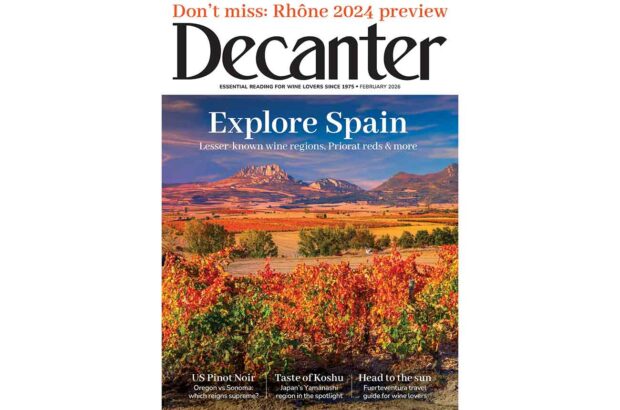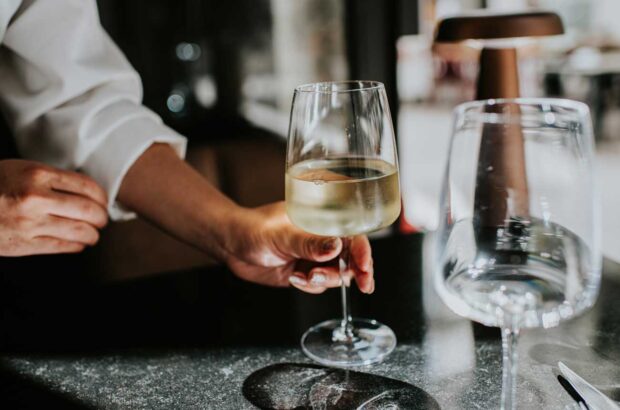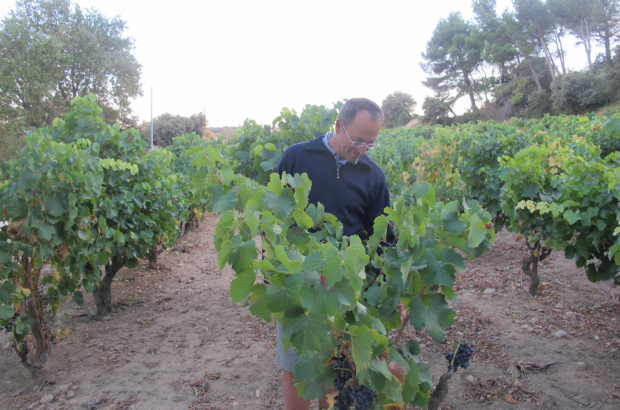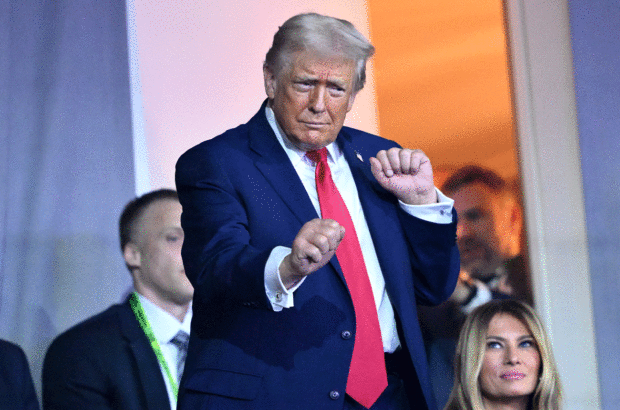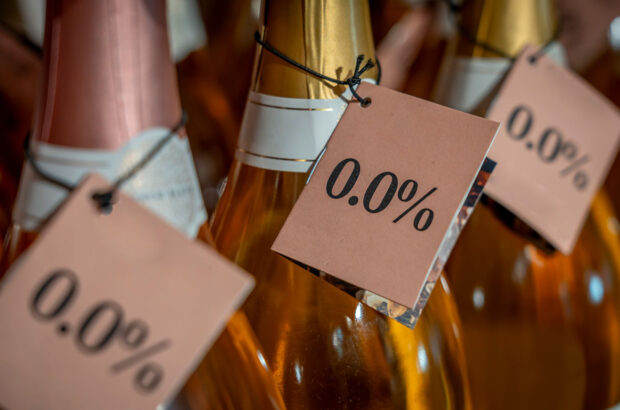Don Bryant of Bryant Family Vineyard tells Kyle Schlachter why Bordeaux will always be the benchmark - and why it makes him mad he can't say Bryant is the best wine ever made...
Don and Bettina Bryant
Bryant Family Vineyard is considered by many to be one of California’s grand cru sites. Don Bryant, chairman and chief executive of the Bryant Group (an executive benefit and wealth management firm in St. Louis, Missouri), built his eponymous estate in the hills above Napa Valley in an area known as Pritchard Hill, on the eastern slopes of the valley overlooking Lake Hennessey. Colgin and Chappellet are neighbours. Bryant employed husband and wife team Helen Turley and John Wetlaufer as winemakers, a 10-year relationship which ended in 2002 with a very public falling out and a court case found in Turley’s favour in 2005. Today Bryant describes Turley as an ‘outstanding’ winemaker. In addition to making and collecting fine wine, Bryant and his wife Bettina are also contemporary and modern art collectors. Their collection includes works from Picasso, Pollock, Matisse and Serra. Bryant has also served as a trustee of the Museum of Modern Art in New York City and on the International Advisory Board of the Tate Gallery in London. There are three wines: Bryant Family Vineyard Proprietor Grown Cabernet Sauvignon, Bettina, a Bordeaux blend sourced from David Abreu’s Napa estates, and DB4, a blend of Bryant and Abreu estate fruit. The first wines retail for around £500 per bottle, the DB4 at around the £145 mark.
You were a successful businessman before you started your winery. What made you want to get into the wine industry?
I was in the area near where my vineyard is now with friends, and they thought it would be a good idea if I bought some land up there, and like a guy who didn’t know what he was doing, I bought it for a house. I wanted to have something to do when I was out there, so I contacted a broker and told him I was interested in buying vineyards. I told him that I didn’t want to drive more than 15 minutes. I just wanted to have a good time, make some wine that was decent enough that I could show it to friends. He talked to a lot of old winemakers and they said that this area (Pritchard Hill) was the best place. I went out there – this was back in 1985 when not everywhere was a vineyard like today – it was kind of run down. It wasn’t for sale. So I made an unsolicited offer with no conditions on it – $250,000 for 12 acres. It was a particularly good investment…
Some things weren’t done very well at the beginning; I didn’t hire a very good vineyard manager or winemaker at the start. I got taken advantage of more than once, so I told my wife that we’re either going to do it right or we’re not going to do it. I hired a headhunter who found two women and two men for me to interview. I was most impressed with both women. Last one standing was Helen Turley. She is an outstanding winemaker. She convinced me to hire David Abreu as vineyard manager. In fact, if I had a choice between a great vineyard manager or a winemaker, I’d choose the vineyard manager – somebody like David Abreu; he’s unbelievable. That’s how we got started and we started making great wine. We were doing this in a winery that was semi-cooperative. So when Robert Parker gave us 100 points, I asked Helen, ‘What could we do to make this an even better wine?’ She said, ‘you have to have your own winery so you can do things exactly when we need to do them and not when other people are around.’ So I started on the winery. I’ve had a lot of fun, but we’re just at the beginning.
Outside of having a young child – there isn’t anything I’ve enjoyed as much as making great wine. But I always try to remind myself that this could all go away tomorrow. Something could go wrong in the vineyards. It could come and go.
How often are you at the winery?
It varies some months. I try to be there twice a month. I sold the house in Connecticut and now we’re going to build a house very close to the winery. I bought the property, so the next thing is to get an architect. I wouldn’t be spending all this money if I weren’t planning on spending more time here. I have my own jet and that allows me to travel quickly to my other business in St. Louis and then our clients in New York..
How have the wines of Bryant Family Vineyard changed over the years?
A few years ago I counted that I was the only winery in Parker’s top 25, from California, that wasn’t a Bordeaux blend [Bryant has always been 100% Cabernet Sauvignon]. That’s when I decided to buy grapes from David Abreu, whose grapes are as good as mine, if not better. I got a great guy to sell me about half of his grapes, they’re high quality and I named the wine after my wife – Bettina. This is a Bordeaux blend. 100% Cabernet is what our customers are used to, but they love the Bettina. It is my favorite, as well.
In 2008, we did one other thing. We’re so selective about the grapes – unbelievably selective. I couldn’t sell the others because people would say it is from Bryant Family Vineyard. Those other grapes are very good, but there is just a slight difference. So, I put the name DB4 together because everyone on the board has either a D or a B for an initial. We started it at $75. Now it is at $95 and I have no intention to raise it higher than that.
When they visit they winery people tell me how much they enjoy it. Not everybody can afford Bryant of Bettina. Everyone tells me it is the best wine for the price. It comes from our vineyard. It is a great feeling when you can do that for people. So now we have a blend (Bettina), which a lot of people like, and a wine that is all Cabernet at a reasonable price (DB4) and Bryant Family.
What is the production of Bryant Family Vineyard?
We currently have about 4000 cases. It is hard to evaluate this right now because 2012 is such a huge yield for everybody. We’re expanding the vineyard and the winery. Still need to get approval for that. I’ve had to redo the vineyards twice. That’s a lot of work. We went through a few years when we didn’t have a lot, only about 300-400 cases.
We doubled it two years ago and I think we’re going to be doubling it in the next year or two. We get such quality from David Abreu. We’ve got a general manager that is real smart, Brady Mitchell. They’re doing a great job. It is wonderful to build a team that you’re proud of. They have to have the same type of commitment everyday. But we can grow because of the quality of the grapes.
How has the waiting list changed?
We’re blessed with a very big following. That happened because of the first few years with really great wine, because of Helen Turley. I have to give her the credit for that. So demand is stronger than ever. I could make 10,000 cases and could sell it all. It takes me a month or two sell everything we make. The distributors don’t have any problem selling it either. Last year, 2009, we had a lot more wine than ever because of Bettina and we were at 90% more production. We went through it all really quick. Demand for the DB4 – at $95 – is just enormous. It is perfect for restaurants. I don’t understand why more wineries don’t things like that.
Do you make wine for consumers, critics or yourself?
Certainly not for a score, because if you don’t like the wine, it doesn’t matter. You have to be really pleased with the wine. The reason I haven’t made any changes to Bryant is because my customers don’t want me to. It is that simple. And I don’t necessarily want to either. Whatever happens with a score happens.
How has the vinification changed over the years?
One of the changes we’re doing now is we’re putting in concrete tanks. I don’t believe in having a whole lot of risk. Make it small because if things aren’t right you don’t ruin the entire year. I’m very careful about that. I like trying to see what new things we can do to improve the wine, but I don’t want it all in one tank. Every time you get a new winemaker they want to put in new things.
It seems like many of the top Napa wineries – Ovid, Screaming Eagle, Harlan – have decided to promote promising young assistant winemakers to the head position rather than bring in a big name from outside, as used to be the case. Why do think there has been this shift to younger winemakers?
I didn’t have the judgment to begin with, so hiring Helen was probably the best thing I could have possibly done. I’ve learned that big names don’t necessarily work out. I wanted a person with a lot of character who wanted to work hard, and knew they still had a lot to learn. They got be strong, smart and with the guts to do the right things. They’ve got to be able to develop relationships with other people. Todd Alexander, our new winemaker, is interested in learning. He is interested in realizing that it takes time to do all of this. I’ll be very, very surprised if he’s not around a long, long time. I don’t hire winemakers to fire them; they fire themselves.
You’ve got a new winemaker…
We have good people, really good people. Todd has been with us for a few years as assistant winemaker, but let me tell you, this guy is really smart – probably the smartest guy we’ve had. He works hard. He worked for 2 ½ weeks and he went home only one night. I’m not saying he has to do that to keep the job, I’m just saying he’s highly committed. He checks with other people who are tremendously smart about winemaking. He doesn’t have to do that, but he does because he wants to make sure he is continuously learning.
You’ve got to be lucky to get a vineyard like have. After that, you’ve got to give everything you’ve got to make these wines. What I learned very early is that you just can’t make short cuts. High quality people, great vineyards and doing everything you can do make sure the wines are great.
How much time does [consultant] Michel Rolland spend at the vineyard? How much is he responsible for the blend?
I think Michel Rolland is the greatest blender there is. He has been with us since 2002. He is an extremely smart guy and he is very knowledgeable. We really love him. He comes three times per year. We have a winemaker that’s in charge, but I want him to carefully listen to Michel Rolland. He’s been very helpful. He does a lot of things. He is always there on the telephone if we need him. I wouldn’t pay him the money if I didn’t think he was worth it.
Armand de Maigret at Screaming Eagle was recently quoted as saying the word ‘cult’ is no longer used. Would you still describe Bryant as a cult wine? How would you describe your wines and other similar wines?
I don’t care as long as they keep buying my wine, they can call it whatever they want. We want to grow and grow. I’m not going to grow at all if we can’t maintain the quality.
What do you see in the future for the high-end wine market?
Well, Bill Harlan started a new thing by finding other people who have great vineyards to sell him grapes. BOND [Harlan’s collective of five ‘grand cru’ estates in Napa] is a great example of a thing that wasn’t happening when I started. He’s a tremendous guy and is my competition as far as I’m concerned.
If you weren’t making wine in Napa Valley, where would you want to make wine?
Oh boy. I have a hard time saying any place else in the United States because Napa is the best place. If we’re talking anywhere in the world, it would have to be Bordeaux. My favorite wine is Chateau Latour – it makes me mad that I can’t say Bryant. I also like Bettina. But for me, the 1982 Latour is the best wine ever made.
Written by Kyle Schlachter



